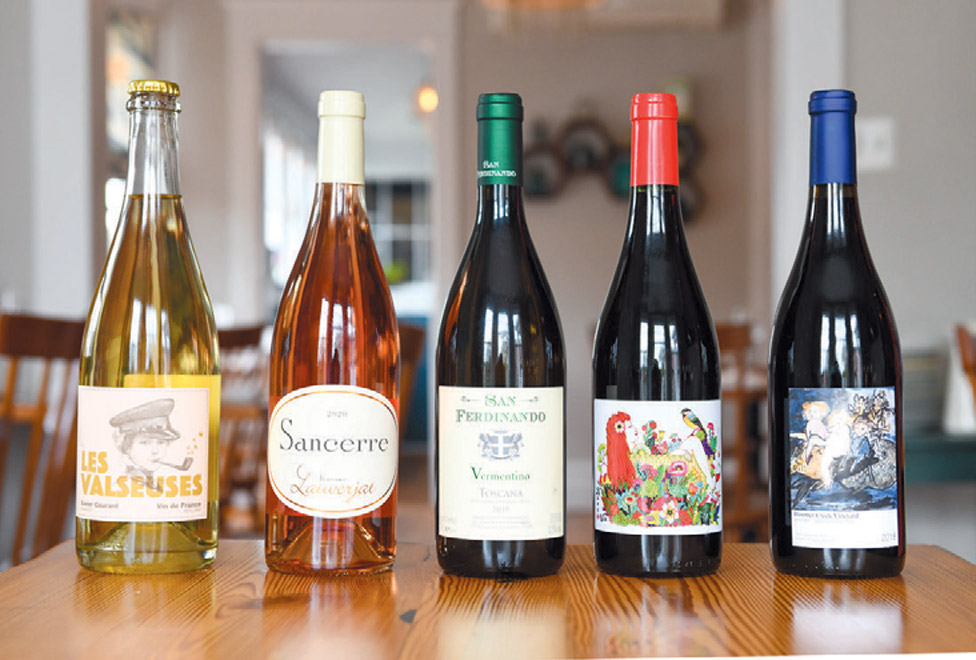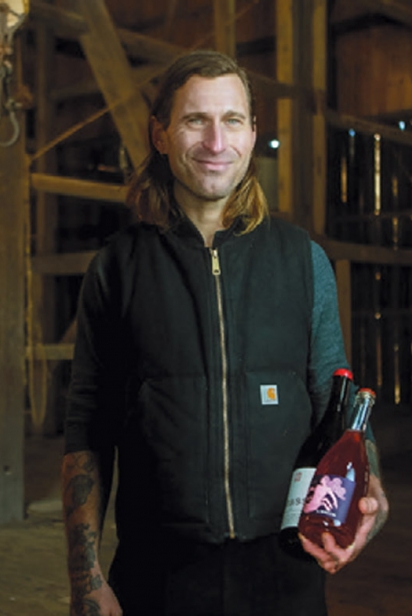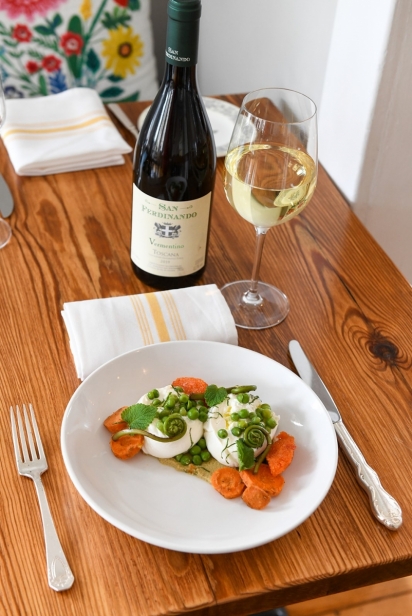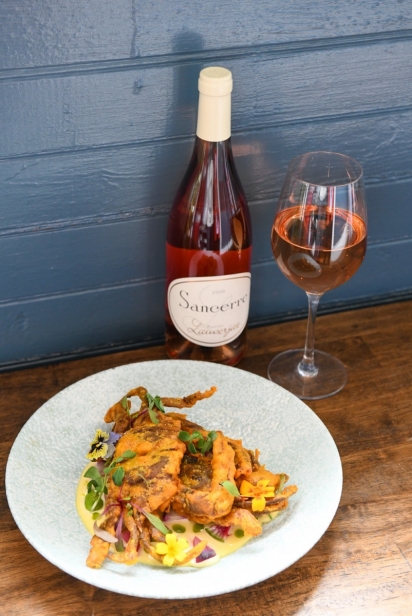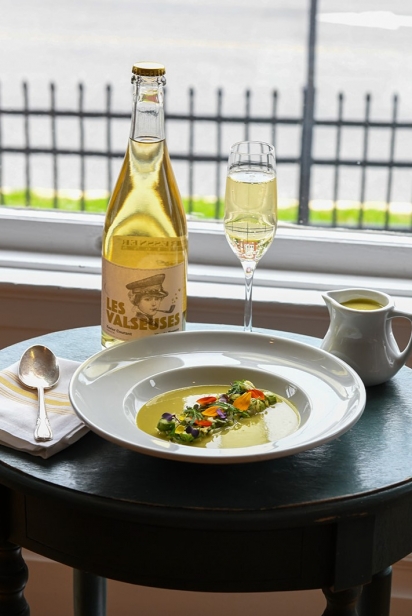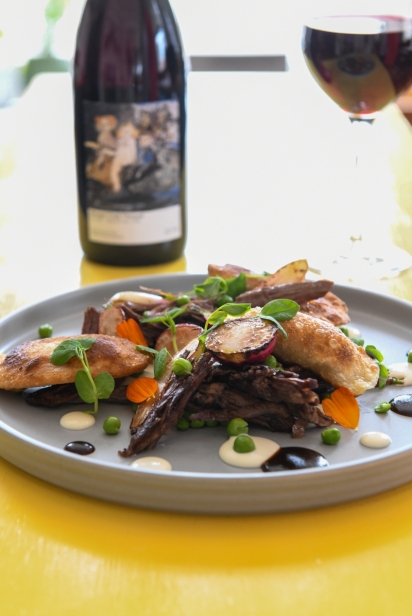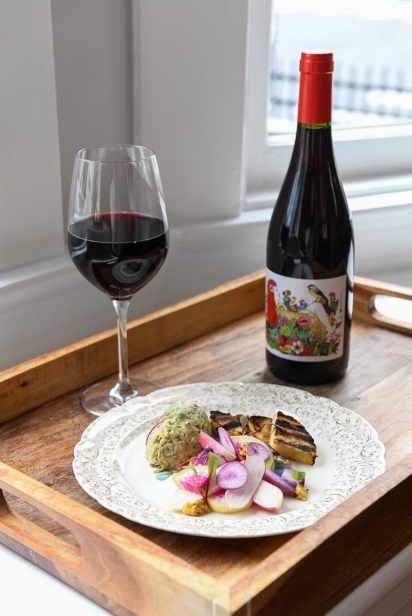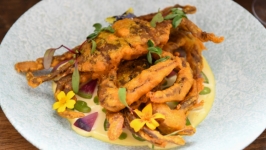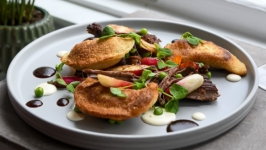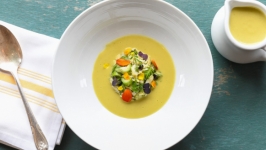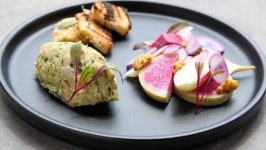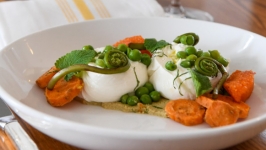Getting to Know Natural Wines
Sam Anderson of Ouro Wines gives us the scoop on natural wines!
(and gives five pairing suggestions for recipes from Heirloom in Lewes, Delaware)
Edible Delmarva: What differentiates natural wines from organic or conventionally-produced wines?
Sam Anderson: I like to tell people that “natural wine” is similar to the “farm-to-table” food movement. The people who grow the grapes are making the wine. There is real connection between the farmer, the land and the wine being produced. These wines have heartbeats and reflect the land of their origin and the people who make them.
There are no set rules for what qualifies a wine as “natural.” The wine world has been disagreeing about this for years. There are consensus benchmarks, however. Above all is a focus on farming. Unlike “conventional” wines, natural wines are produced using no commercial herbicides, pesticides and fertilizers, and farmers have a commitment to preserving and regenerating the health of the soil—allowing for a biodiverse farm (not just growing grapes) where nature is respected.
Natural winemakers will not use any commercial additives to make their wines, instead relying on the beautiful fruit they have spent all summer farming and harvesting with care. Minimal amounts of sulfur dioxide is often used as a preservative during the shipping process. On the flipside, conventional wines can contain over 60 different additives allowed by the government to tweak wines, including artificial colors, stabilizers, preservatives, and oaky flavors.
ED: How do natural wines taste?
SA: Imagine the difference between a perfectly ripe, farm-fresh heirloom tomato just plucked from the vine in the summer sun. You can still smell the vine, the tomato leaves, the earth it was growing in. Contrast that to the dull experience of opening a can of tomato sauce, where much time and distance has passed since the tomatoes were harvested. This experience illustrates the tasting experience between natural wine and conventional wine.
There is real life and energy in natural wines as a result of how the grapes are farmed, the health and quality of that fruit. And because they are made without chemical yeasts or additives, there will be a clear transmission of a sense of place that the wines are coming from.
Often, people expect that natural wines will be “funky”, and this can be true. If a wine is a bit wild or funky, it’s almost always a stylistic choice by the winemaker. Maybe they are making a skin-contact white wine (otherwise known as an “orange” wine). Maybe they are allowing for natural sediment to remain in the bottle in their sparkling wine. On the flipside, natural wines can incredibly crystalline, focused and elegant as any other if the winemaker chooses so.
ED: What is the best way to start exploring natural wines?
SA: Shopping in wine stores can be notoriously difficult. There is the label to decode, often language barriers, and it’s rare that a natural wine will say anything about being organic. If they do, it’s usually signified by small certification labels from other countries. Frustrating!!
The best way to explore is to first locate a retail wine store that has knowledgeable staff or that has a focus on natural wine and ask for wines that are made with “minimal intervention.” A retail store will allow for you to take different options home to open and spend time with. When you have a new wine, always look it up online to learn more about its story, how it is made and about the person who made it. These stories are often beautiful and compelling. Making natural wine is very difficult and so the people doing it are quite inspiring. Also, often retail stores will also have tastings where a selection of wines will be open to try.
Restaurants can range from those with carefully curated wine lists with sommelier-guides to those where wine is worse than an afterthought. Smaller, chef- and ingredient-driven establishments will have great wine programs, and usually suggest pairing and often hold tasting event. We’re even starting to see restaurants become as well-known for their excellent natural wine programs as their food!
Ouro Wines
(402) 304-9190


